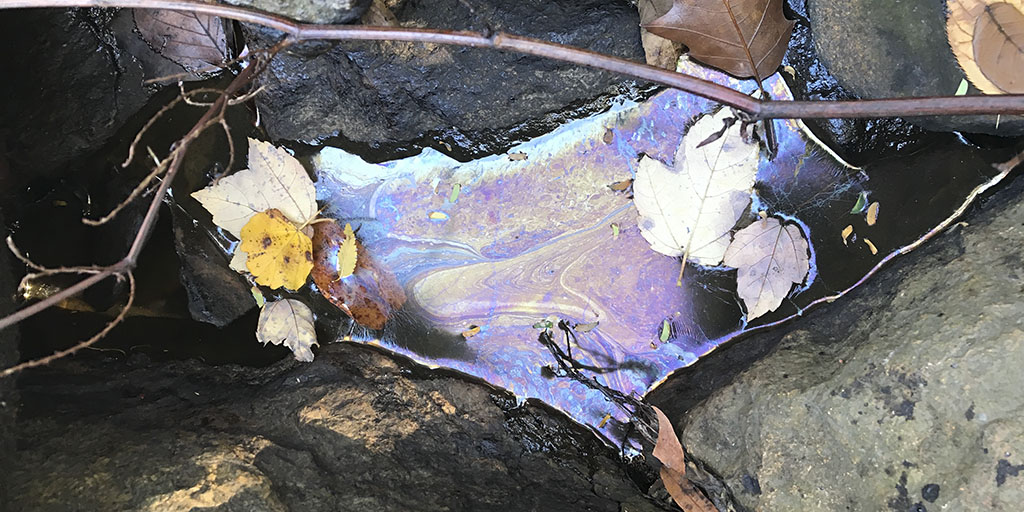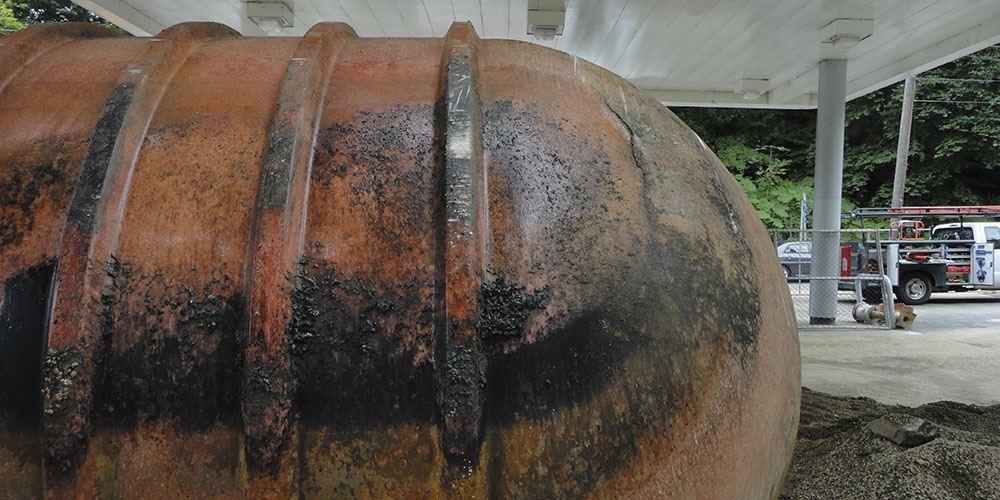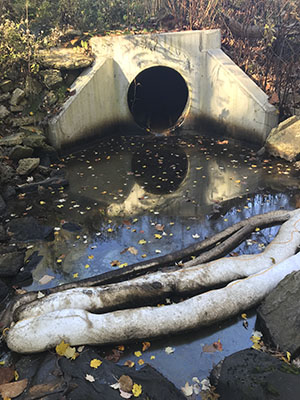Filling up your car at a gas station is a process we rarely think much about. But, do you know what’s under the ground beneath the pump? There is an entire underground storage tank (UST) system that can house between 30,000-60,000 gallons of gasoline and diesel fuel. USTs are generally made from fiberglass or steel, while the rest of the system is made up of a matrix of piping, dispensers, hoses, breakaway systems, and fueling ports.
The average gas station goes through roughly 2,600 gallons of fuel every day and big-box stores average five times that amount, according to the Association for Convenience & Fuel Retailing (NACS). With so much fuel dispensed from UST systems every day, it is important to ensure that equipment is working properly in a leak-free condition. A leak from a UST will often result in a loss of pressure, causing the flow of gas to become really, really slow. So, if you are ever filling up your car and it seems like it’s taking forever, let the facility operator at the counter know!

You can also help prevent accidents from happening, like spills at the station. Stay with your car at all times while fueling instead of going into the store or sitting inside your vehicle! Overfills often happen when the little lever on the pump handle isn’t functioning properly. When that happens, gas will flow out of your tank, onto the ground and into nearby storm drains. Also be careful not to accidently drive off with the hose!
If gas does accidently spill, don’t start your engine! Put the vehicle in neutral, move it away from any type of fuel before starting the engine and report it immediately to the facility operator. If you get the impression that nothing is going to be done to address a spill, contact the PA Department of Environmental Protection (DEP).
Aging underground storage tank (UST) systems are critical to our infrastructure but can pose a serious environmental risk as they age and deteriorate. Since USTs are buried underground, and some aging USTs are even abandoned, leaks from deteriorating storage tanks constitute a largely invisible risk. There are over 21,000 active registered gas and diesel fuel tanks in the ground in Pennsylvania that allow us to run our cars, lawn mowers, boats, ATVs, and more! It is crucial that these tanks are maintained and upgraded to prevent spills, leaks, and other accidents.

A cracked storage tank at a gas station
The life span of a fiberglass UST is approximately 30-40 years, and properly maintained steel tanks can last even longer. But, eventually, all tanks deteriorate: contact with soil can corrode steel tanks, and modern fuels like ethanol and biofuels can eat away at fiberglass tanks, causing them to chip, peel, and crack. Over time, this can form a hole in the tank, allowing its contents to be released into the environment. Over the last four years, there have been an average of 236 confirmed fuel releases every year. The DEP’s job is to oversee inspections and perform random site visits of facilities that use storage tanks to ensure that tanks are in good shape and safe for storing regulated substances, and to prevent releases from occurring in the first place.
The EPA states that leaking USTs have historically been one of the greatest threats to our groundwater, not only in Pennsylvania, but across the nation. They also estimate that at least 25 percent of UST systems have the potential to leak or may be currently leaking. Soil, groundwater and surface water contamination from a UST leak can cost hundreds of thousands of dollars to clean up.

DEP offers financial assistance to address regulated Leaking Underground Storage Tanks (LUST) though the Underground Storage Tank Indemnification Fund (USTIF). Information on other UST assistance programs is available through the
Pollution Prevention Reimbursement Grant Program (Pump and Plug) and the
Underground Heating Oil Tank Cleanup Reimbursement Program.
What can you do to help? Upgrade old tank systems and report any leaks or spills immediately to the DEP by calling 800-541-2050 or go to the DEP website to
Report an Incident so that we can protect our land, water, and air from pollution.